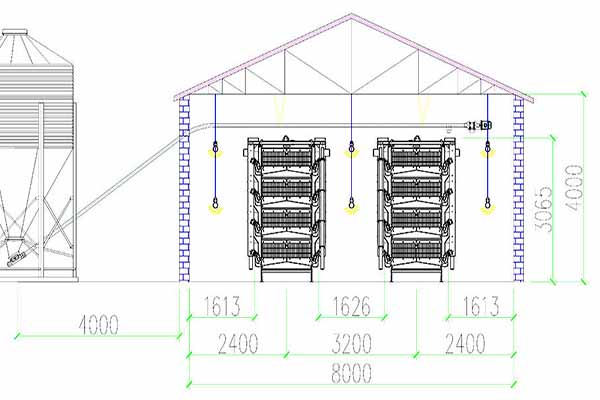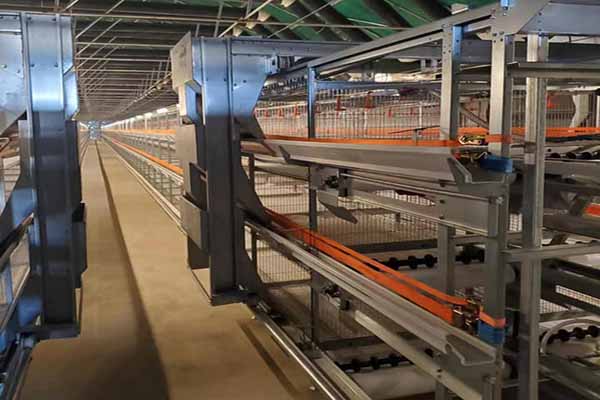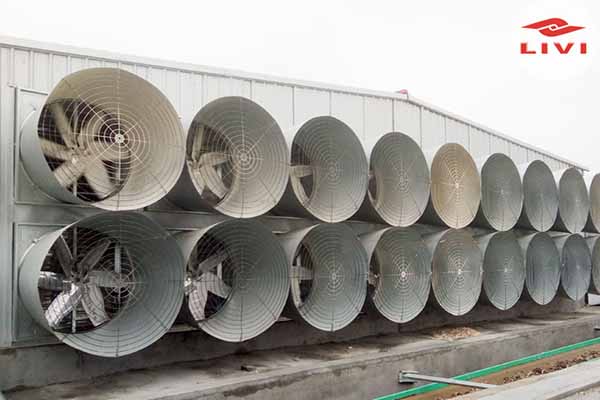Optimizing Chicken Cage Systems in Nigeria for 10,000 Birds
Time : 2025-07-01
Introduction

As the poultry industry in Nigeria continues to grow, the demand for efficient and scalable chicken cage systems has become paramount. With an aim to house up to 10,000 birds, it is crucial to implement a system that not only maximizes space but also ensures the health and productivity of the flock. This article delves into the intricacies of designing and implementing chicken cage systems tailored for large-scale poultry operations in Nigeria.
Understanding the Scale of Operation
Before delving into the specifics of chicken cage systems, it is essential to understand the scale of operation. Housing 10,000 birds requires a comprehensive plan that addresses factors such as space, ventilation, feed management, and waste disposal. A well-thought-out system can significantly impact the overall efficiency and profitability of the farm.
Designing the Chicken Cages
The design of the chicken cages plays a critical role in the well-being of the birds. For a farm housing 10,000 birds, the following considerations should be taken into account:
- Space Allocation: Each bird requires a minimum of 0.3 square meters of space. This ensures adequate movement and reduces stress.
- Material Quality: High-quality, durable materials such as steel or galvanized iron should be used to construct the cages, ensuring longevity and resistance to corrosion.
- Sliding Doors: Easy access for feeding, cleaning, and vaccination is essential. Sliding doors can facilitate these tasks without causing distress to the birds.
- Roosting Bars: Properly designed roosting bars promote good posture and prevent foot issues in the birds.
Ensuring Proper Ventilation
Proper ventilation is cruc ial for maintaining optimal conditions within the chicken cages. The following factors should be considered:
ial for maintaining optimal conditions within the chicken cages. The following factors should be considered:
- Intake and Exhaust Vents: Strategically placed vents allow for controlled air flow, preventing heat buildup and the accumulation of ammonia, a harmful gas produced by decomposing droppings.
- Airflow Rates: Adequate airflow should be maintained to ensure the exchange of stale air with fresh air, reducing the risk of respiratory diseases.
- Natural vs. Mechanical Ventilation: While natural ventilation is cost-effective, mechanical systems can provide better control and efficiency, especially in extreme weather conditions.
Feed Management and Water Supply
Efficient feed management is vital for the health and productivity of the birds. The following practices should be implemented:
- Automated Feeders: Automated feeders can ensure a consistent and precise feed supply, reducing waste and promoting better growth rates.
- Watering Systems: Continuous access to clean, fresh water is essential for the birds’ health. Watering systems should be designed to prevent contamination and minimize waste.
Waste Management and Biosecurity
Proper waste management and biosecuri ty measures are crucial for maintaining a healthy environment. The following practices should be considered:
ty measures are crucial for maintaining a healthy environment. The following practices should be considered:
- Manure Removal: Regular manure removal is necessary to maintain cleanliness and reduce the risk of disease. This can be achieved through manual collection or automated systems.
- Biosecurity Measures: Implementing biosecurity protocols, such as controlled access to the farm, regular disinfection, and isolation of sick birds, can prevent the spread of diseases.
Monitoring and Maintenance
Regular monitoring and maintenance of the chicken cage systems are essential to ensure optimal performance. The following practices should be followed:
- Temperature and Humidity Monitoring: Use sensors to monitor the temperature and humidity levels within the cages, ensuring they remain within the optimal range for the birds.
- Equipment Inspection: Regularly inspect and maintain the equipment to prevent malfunctions and ensure efficiency.
- Health Monitoring: Keep a close eye on the health of the birds, looking for signs of disease or stress, and address any issues promptly.
Conclusion
Implementing an efficient chicken cage system for a farm housing 10,000 birds in Nigeria requires careful planning and attention to detail. By focusing on factors such as space allocation, ventilation, feed management, waste management, and biosecurity, poultry farmers can create an environment that promotes the health and productivity of their flock. Investing in a high-quality, professional-grade chicken cage system will not only enhance the birds’ well-being but also lead to increased profitability for the farm.











